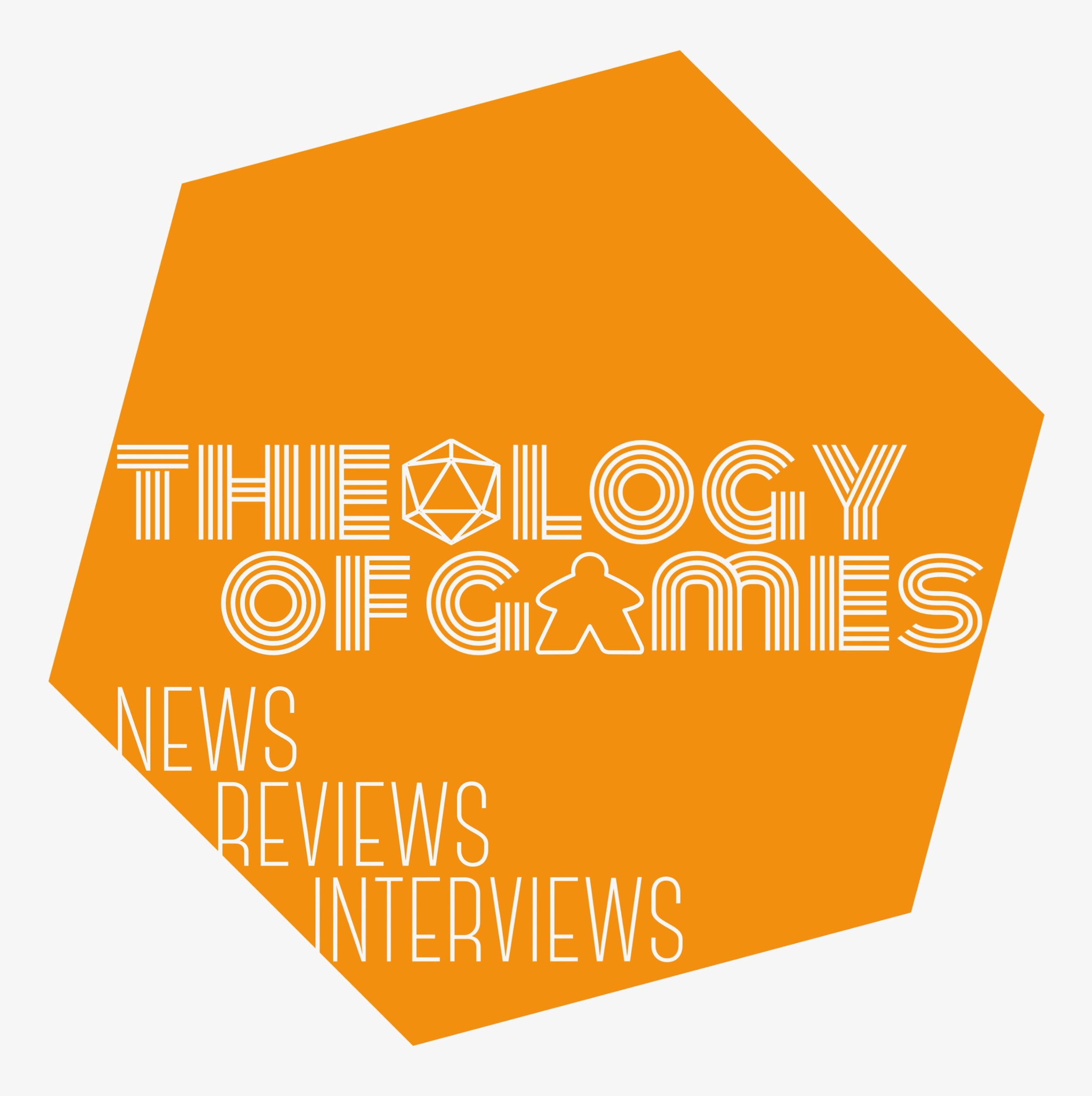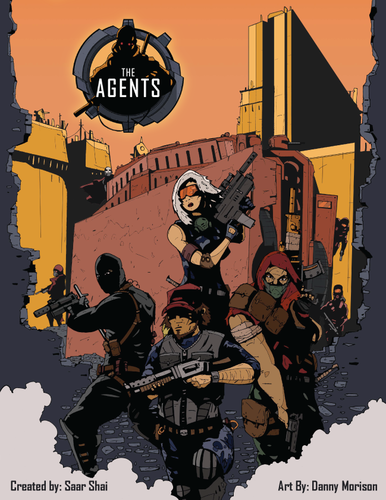Secret Agent Man--A Double-Take Review of The Agents
/"There's a man who leads a life of danger
To everyone he meets he stays a stranger
With every move he makes another chance he takes
Odds are he won't live to see tomorrow."
- Johnny Winter, Secret Agent Man
Last year Kickstarter was taken by force by a little card game called The Agents, a single-deck card game featuring re-activated agents who have new missions to complete, and new intel to gain. Is it worth the danger? or will The Agents double cross you? Only one way to find out....
Title - The Agents
Publisher - Saar Shai
Number of players - 2-5
Ages: 8 and up (Probably more like 10 and up.)
Play time - 30 minutes (This seems right to us.)
Category/Genre - Conflict-heavy, hand-management card game
Pros:
- Full of decisions
- Very low downtime
- Cool theme and artwork
- Good expansions that add a lot of replayability.
Cons:
- Component quality
- Players are defenseless on other turns
- Lots of card sorting
- Some questionable artwork
Good for...
- Family? Probably not! The artwork for some of the women, and a fair amount of blood, mean it's not great family fare.
- Youth Groups? Probably not! For the same reasons as above.
- Gamers? Yes!
- Nongamers? Maybe!
Rating:
Jeremiah: 8
This is a fun, quick-moving tactical card game. There aren't many games that can pull off a double-edged mechanism like The Agents!
Firestone: 7
There's some randomness with the cards, but as a conflict-heavy filler with interesting decisions, it hits the mark.
The Components
The Agents is a completely card-driven game, even your victory point counters are cards. Here's how they break down:
- Agent Cards - There are two types of agents, Faction Agents, which play into a faction--more on that later. Faction Agents have a command ability on the bottom of the card and half of a Data Token on either side of the top of the card. There are also Free Agents, which you play once, give out some points a number in a full Data-Token and a cool action via a command on the bottom of the card, and then are discarded.
- Mission Cards - Missions are played into a faction and give points/abilities on your turn when the mission condition is met.
- Intel Point Counters - Intel Points are your victory points, as well as your currency for the game.
- Safe House Cards - These denote the location of the factions on the table.
- Special Edition Extra Cards - For this new edition of The Agents there have been a bunch of new added cards thrown into the mix. These are all small expansion type packs that add a lot of variety and replay value to the game. Things like Black Ops Missions, Special Agents and the like.
The Setup
To start the setup place Safe House Cards between each player--there should be one Safe House for each player--in a way that the card is either exactly upside down or pointing at each player. Sort out all of the IP Cards.
Next separate the Mission and Agent Cards and deal 3 Agents and 2 Missions to each player.
The player who looks most suspicious goes first...which is always Jeremiah.
The Gameplay
The gameplay is pretty simple: Each player, in turn order, gets two actions per turn. They can take two of the same actions if they like.... So let's take a look at those actions; this is where things get really interesting!
- Playing an Agent--You can play a Faction Agent on either of your Factions--the ones that are between you and each of your opponents. At this point you must decide if you want the Data-Token on the card to face you, or your opponent, which also means that the command/ability on the bottom of the card will either face you or your opponent. This is where the strategy comes in! If the command is facing you, you get to use it. If not, your opponent does. BUT if the Data-Token is facing you, you can match it with other Tokens that will award you points on your turn. But if the Data-Token on the agent is facing your opponent... well you can figure that out. Likewise with the Data-Token on a Free Agent, you can choose ANY opponent to either give the points or the command to, and take the opposite.
- Reactivate a Command--If a command is facing you, you can choose to reactivate it on your turn, which can be VERY handy!
- Buy Cards--This action allows you to draw up to four cards total, two from the Agent deck and two from the Mission deck. This costs you 1 IP per Agent Card, and 2 IP per Mission Card!
- Trade Cards--If you'd rather not play the cards you have, you can retire the cards in your hand and redraw the same amount, keeping the same ratio of Mission and Agent cards.
- Mission Phase--After a player has taken two actions they can play up to two Missions on each faction, or move previously played Missions to their hands OR their other Faction.
- Score some points--After the Mission Phase the player scores points for each completed Data-Token that's facing him at the end of their turn; matching-color Tokens are worth two points, miss-matched Tokens are worth one. Missions and Free Agents are worth their face value.
The game ends when someone hits 40 IPs.
The Verdict
Jeremiah--This is one of the most aesthetically pleasing games I've seen in a while; the artwork and graphic design is top notch. It reminds me of why I thought comic books were so cool growing up!
Firestone--Yeah, the artwork is definitely the first thing I noticed on this game. It's gritty, evocative, and unique. My one complaint there is that some of the women in the game are...overemphasized in their sexuality. Not all, but some. And some of the artwork for the new edition is even moreso. Yep, you can take those cards out. I just don't like having to do that. But the alternative is watching my sons play The Temptress on me...
Jeremiah--We picked this game up quickly, and it was very competitive and fun. There isn't a whole lot to learn in terms of how to play, but figuring out what to play when, and how to leverage a card's command ability vs. taking the points at the right time makes for a lot of fun decision-making.
Firestone--Yeah, there aren't a whole lot of rules to learn. It's just that practically every card in your hand has special powers or text, so it can take a little bit to read it all, understand it, and then figure out how to play it. It's very tactical: Each turn you have to figure out how to best play the cards in your hand for the situation on the board.
Jeremiah--There is a super gritty feel to this game, which is a combination of the art/graphic design, and the flavor text within the rule book and on the game's Web site itself. There are random expletives dropped in here and there that can catch you off guard if you aren't expecting it. It's not actually in the game itself, but it is out there, so just be aware.
Firestone--As far as number of players, for me, less is more here. I've played with 5, 3, and 2, and it's better with fewer, IMO. You're only ever interacting with the two people on either side, so adding more people you can't affect just adds length and lack of control. If that guy across the table from you is about to win, there's nothing you can do to stop it. It's not bad with more than 3...I would just rather play with 2 or 3 only.
Jeremiah--I think the aspect of The Agents that hits home for me is the high level of interaction that is involved with the game. Unlike a deck-builder or worker placement type of game, EVERY card you play WILL affect one of your opponents, you're not just playing cards to try and score the most points, you're trying to prevent your opponents from scoring, which might in fact cause them to score! Think about that for a minute or two....
Firestone--Yeah, that's probably my favorite aspect. I like having to make meaningful decisions, and this game has them at every turn. On the flip-side (see what I did there?), it can be...wearying? that every, single turn finds you helping your opponents. It takes a little bit to wrap your head around it and accept that you're going to help someone every turn.
Firestone--My biggest complaint about the game is that the cards have nubs on them. Is nubs an okay word? Will that get this review stuck in people's spam filters? Anyway, I assume it's because the cards are plastic, and had to be popped off a sprue, but it leaves behind nubs on every card. I can't imagine how expensive it would have been to get rid of those on the production side, but on my play side, they're distracting and annoying. I think this is being taken care of in the 2nd edition that's currently on Kickstarter, but I'm not positive.
Jeremiah-- I don't think nubs will get us flagged, but I'm pretty sure "sprue" will...
Jeremiah Final Verdict--I don't know that this is a family game, I think it's a little too high concept for younger kids to comprehend the duality of every single card. But it sits well with a higher level casual gamer, or straight-up gamers. The Agents plays quickly enough, and packs about 4,742 decisions into about 30 minutes of play.
Firestone Final Verdict--When I first played an early version of The Agents a year ago, it felt like an almost-there game. The tweaks that Saar has added have made this a much better game. It's a solid card-driven game with conflict and interesting decisions.
The Return of the Agents is on Kickstarter for a few more days. So check it out before this campaign is terminated with extreme prejudice...
Check out our new Take Two video review of the Agents, for more of our thoughts on The Agents!

















